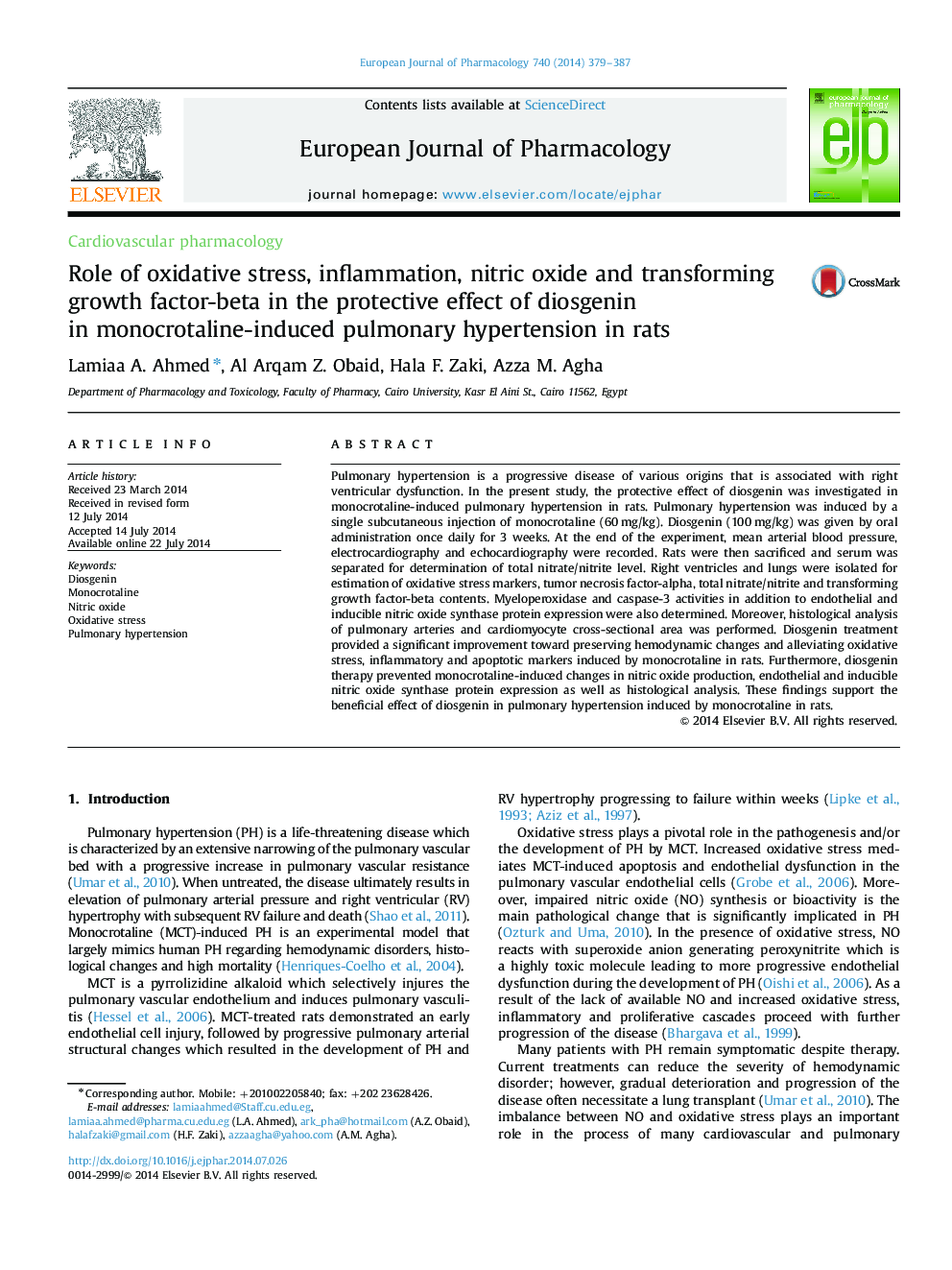| Article ID | Journal | Published Year | Pages | File Type |
|---|---|---|---|---|
| 2531654 | European Journal of Pharmacology | 2014 | 9 Pages |
Pulmonary hypertension is a progressive disease of various origins that is associated with right ventricular dysfunction. In the present study, the protective effect of diosgenin was investigated in monocrotaline-induced pulmonary hypertension in rats. Pulmonary hypertension was induced by a single subcutaneous injection of monocrotaline (60 mg/kg). Diosgenin (100 mg/kg) was given by oral administration once daily for 3 weeks. At the end of the experiment, mean arterial blood pressure, electrocardiography and echocardiography were recorded. Rats were then sacrificed and serum was separated for determination of total nitrate/nitrite level. Right ventricles and lungs were isolated for estimation of oxidative stress markers, tumor necrosis factor-alpha, total nitrate/nitrite and transforming growth factor-beta contents. Myeloperoxidase and caspase-3 activities in addition to endothelial and inducible nitric oxide synthase protein expression were also determined. Moreover, histological analysis of pulmonary arteries and cardiomyocyte cross-sectional area was performed. Diosgenin treatment provided a significant improvement toward preserving hemodynamic changes and alleviating oxidative stress, inflammatory and apoptotic markers induced by monocrotaline in rats. Furthermore, diosgenin therapy prevented monocrotaline-induced changes in nitric oxide production, endothelial and inducible nitric oxide synthase protein expression as well as histological analysis. These findings support the beneficial effect of diosgenin in pulmonary hypertension induced by monocrotaline in rats.
Graphical abstractFigure optionsDownload full-size imageDownload high-quality image (224 K)Download as PowerPoint slide
